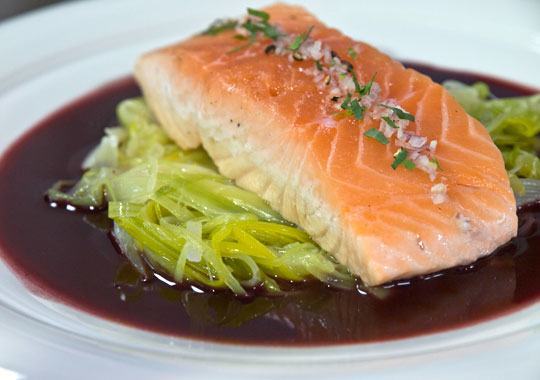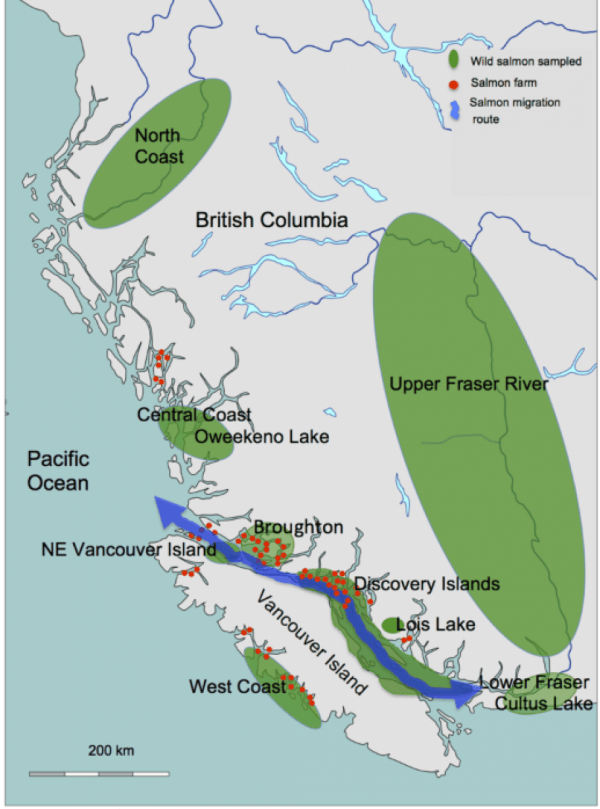
Researchers have issued a desperate warning about salmon that has left millions of people terrified to eat the fish.
According to Take Part, a pathogen that is “arguably the most feared viral disease of the marine farmed salmon industry” has popped up in both farmed and wild fish in British Columbia. Researchers found this while conducting a a new study published in Virology Journal.
The virus is called the infectious salmon anemia virus, and experts warn it could increase the risk in outbreaks in salmon fisheries from Alaska down to the Pacific Northwest.
“This is first of all a salmon virus and a member of the influenza family, and it mutates easily and rapidly,” said coauthor Alexandra Morton, an independent marine biologist. “There is no place in the world where this virus has existed quietly. It has always caused a problem. It was detected in Chile in 1999, and nothing was done to contain it. They allowed it to reproduce and mutate, and in 2007 a form appeared that swept the coast and caused $2 billion in damage.”
The B.C. Salmon Farmers Association has been very defensive about this, and they responded with an attack on the science behind the study.
“We have great concerns about the methodology and the ethics of the researchers involved, given their history of reporting false positives with respect to ISA,” said Jeremy Dunn, executive director. “None of the results reported in this paper have been confirmed by an outside laboratory.”
Morton has called this response unhelpful.
“This is a dangerous virus to the industry and to the wild salmon, and we need to deal with this in a scientific way,” she said, adding that the fish farmers have refused to allow her group access to farmed salmon for testing. “They deny everybody access. It really inhibits the work. You have to go and get the dying fish out of these farms and test them.”

Morton says that the United States and Canada both need to react to this fast.
“If B.C. is positive for ISAV,” said Morton, “the United States and other governments will in all likelihood close their borders to the export of farmed salmon” and salmon eggs.
“What needs to happen now,” she said, “is that all laboratories need to do the same test—so we don’t compare apples to oranges—and we need access to the farmed fish. So far no one has stepped up to accomplish that. It is critical that we learn from what happened to Chile. In my view, this work gives B.C. the opportunity to avoid tragic consequences.”
The bottom line is, until further notice, do NOT eat salmon! SHARE this story so that your friends and family can be warned about this as well!
More About:Lifestyle
